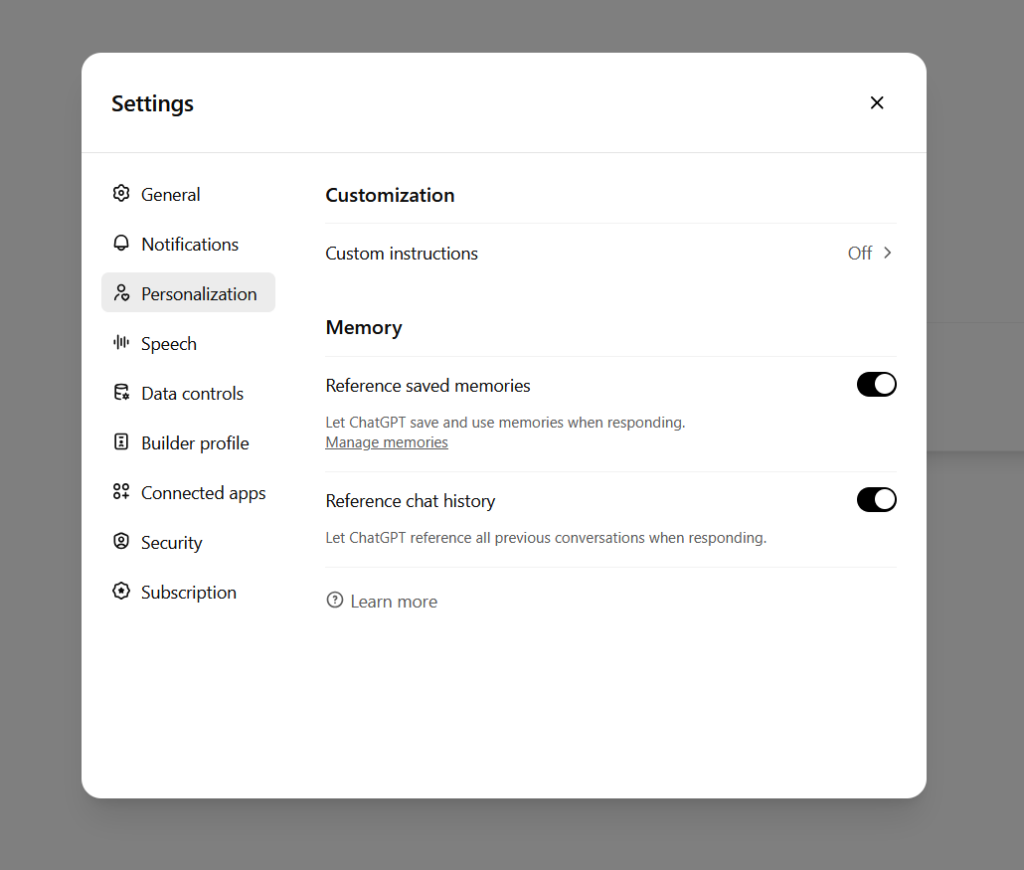OpenAI has introduced an enhanced memory feature for ChatGPT that allows the chatbot to reference past conversations, tailoring its responses to each user based on their chat history. This update, which was announced on April 10, 2025, aims to provide a more personalized and fluid interaction by using information from previous conversations to improve the chatbot’s relevance.
Starting today, memory in ChatGPT can now reference all of your past chats to provide more personalized responses, drawing on your preferences and interests to make it even more helpful for writing, getting advice, learning, and beyond. pic.twitter.com/s9BrWl94iY
— OpenAI (@OpenAI) April 10, 2025
Previously, ChatGPT allowed users to save specific memories, but with this update, ChatGPT can now automatically reference all past conversations. This means that even if users haven’t explicitly asked the chatbot to remember certain details, it can now use historical chat data to provide more relevant responses. The company explained, “ChatGPT can now reference all of your past chats to provide more personalized responses,” offering users a more tailored experience without requiring manual input each time.
The new memory capabilities extend beyond just remembering basic facts. ChatGPT will now be able to adjust its tone, goals, and responses to better match users’ ongoing preferences and past interactions.
Rollout and Regional Availability
The new memory feature is available to ChatGPT Plus and Pro subscribers starting today, but it is not yet available to free users. Additionally, the feature is currently not accessible in certain countries, including the UK, EU, Iceland, Liechtenstein, Norway, and Switzerland, due to local regulatory requirements. OpenAI has indicated that it is working on obtaining the necessary external reviews and will eventually roll out the feature to these regions.
This feature will also be expanded to Enterprise, Team, and Edu users in the coming weeks, though a specific timeline has not been provided.
Privacy Controls and User Settings
While the memory feature is designed to enhance the user experience, OpenAI has recognized the potential privacy concerns surrounding the storage of personal data. To address these concerns, the company has implemented several settings that allow users to control what information ChatGPT can reference.
Users can opt out of the memory feature by disabling the “Reference saved memories” setting, which will prevent ChatGPT from recalling key details such as names or preferences. In addition, a new setting, “Reference chat history”, allows users to disable ChatGPT’s ability to adapt its responses based on past conversations. For users seeking complete privacy, ChatGPT offers a Temporary Chat mode, which ensures that no data from the conversation is saved or used for future interactions.


User Feedback and Future Updates
The update has been met with a mix of excitement and skepticism. Many users are eager to see how the new memory system can improve the chatbot’s utility by making responses more tailored to their specific needs. However, some users have expressed concerns about the potential loss of control over their data, especially since the “reference chat history” feature cannot be customized or managed in the same way as saved memories.
In response to these concerns, OpenAI has emphasized that users always have the option to manage their memory settings or choose a temporary chat for anonymity. Furthermore, OpenAI has pledged to continue refining the feature, ensuring that it balances personalization with privacy.




